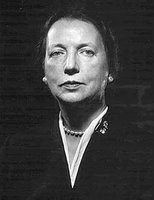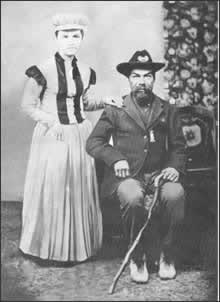Cool stuff in the world of Disability Studies, Geography, and History. Based at Temple University in Philadelphia, with contributors from coast to coast. Check out our 'Notable Blogs' list below - your portal to the disability blog world.
Friday, August 18, 2006
ASL, the Lost Experience, and YouTube
You can follow how the players responded to this in the comments at The Lost Experience Clues blog. It didn't take long for a few regular players with ASL fluency to be found, and online (partly in chat) they worked on a translation together--discussions have touched on problems such as the video's quality (too grainy for the fingerspelling to be easily read, even in slowed down versions), the signer's distracting attire, the close-cropping of the video (for game purposes, the signer's face cannot be shown, and the gamers have discussed how that hinders ASL communication somewhat). Some players posted slower or false-colored versions of the video, to be helpful. So, hundreds, maybe thousands (the video has been viewed over 1500 times in its first day), of Lost gamers are learning something about ASL, or using what they already know, this week.
Elsewhere on YouTube... Caughtya.org recently linked to a wicked New Zealand public service announcement about accessible parking, definitely worth a peek. There's a lot of junk on YouTube, but there's also a lot of potential, like most formats.
Tuesday, August 15, 2006
New books on Dixmont asylum, Deaf in Japan
 Karen Nakamura's Deaf in Japan: Signing and the Politics of Identity (Cornell University Press 2006), starts from the first Japanese schools for the deaf in the 1870s, and relies on both archival and ethnographic research to reveal recent shifts in attitudes, both toward and within the deaf community. Karen Nakamura is an anthropology professor at Yale.
Karen Nakamura's Deaf in Japan: Signing and the Politics of Identity (Cornell University Press 2006), starts from the first Japanese schools for the deaf in the 1870s, and relies on both archival and ethnographic research to reveal recent shifts in attitudes, both toward and within the deaf community. Karen Nakamura is an anthropology professor at Yale.Mark Berton's Dixmont State Hospital (Images of America, Arcadia Publishing, 2006) is a photographic record of the title institution, an asylum on the Ohio River outside Pittsburgh; built in 1859 (and named for Dorothea Dix), it closed in 1984 and the building was razed earlier this year. Berton is a Pittsburgh-based newspaper photographer who "spends his free time photographing asylum architecture."
[Dixmont was apparently a popular site for photographers; Rowdydow has a webpage featuring images from inside its ruins, and Dixmont.info has video and many more stills. The pictures of Dixmont at the Hours of Darkness gallery give you some flavor of the place's style and state before its demolition.]
Saturday, August 12, 2006
Gulp....it's official
Oh, and there are required texts--not sure why that doesn't show on the listing. I'm setting Jacqueline Vaughn Switzer, Disabled Rights: American Disability Policy and the Fight for Equality (Georgetown University Press 2003), and Mary Johnson and Barrett Shaw, eds., To Ride the Public's Buses: The Fight that Built a Movement (Advocado Press 2001), plus an assembled reader.
Friday, August 11, 2006
I Spy.... Trouble at LAX
 Electronic devices, such as cell phones and iPods, however, will likely draw increased scrutiny.
Electronic devices, such as cell phones and iPods, however, will likely draw increased scrutiny.--MSNBC's Rob Lovitt, on the new screening in airports this week
I can probably fly coast-to-coast without my iPod, somehow. I think I can even fly without my laptop. But my eleven-year-old son can only rarely go six waking hours in any situation without this toy, an activity center from Enabling Devices (that's the online catalog photo at right). The wooden ball is pulled to play soft music. The big blue button vibrates and lights up. The red button buzzes and makes the sequins in the bubble spin. The chains in front of the mirror are also a sensory thing. The whole box is fairly heavy, full of batteries, and costs a fortune. We replace it at least once a year because it gets such a workout in our house. Believe me, if there were a lower-tech, cheaper, simpler alternative that worked, we'd be using that. There isn't, for Jake and his needs. (At least, nothing that doesn't also vibrate and buzz and light up.)
A heavy box covered in buttons, that only seems to buzz and vibrate.... would that draw increased scrutiny, do you think? It has in the past, but we've never flown too close after a sudden uptick in security before. Never fear, say the travel experts:
"To entertain young children, bring a deck of cards, and paper andOh, yeah, playing 'I Spy' will be a sufficient diversion for six hours. Except, um, the spying thing (Jake's vision isn't so great), and the naming and describing part, I guess (he's nonverbal). Then there's his adaptive stroller, and his bag full of formula, and liquid seizure meds, and and and.... and now I'm thinking...
pencil. 'You can draw pictures, make designs, play Hangman,' Ogintz
said. Play 'I Spy' on a long line or if you are forced to check the toy
bag, she added."
ROAD TRIP!
For more detailed discussion of problems with the new restrictions for disabled travelers, go read Blue Lily on Echidne of the Snakes and Gimp Parade (it's crossposted, but the former link has more comments).
UPDATE (12 August): Joel Smith describes his own concerns about traveling through Heathrow without an assistive device at NTs are Weird.
August 11: Louise Bogan (1897-1970)
 American poet Louise Bogan was born on 11 August 1897, in a mill town in Maine. She reviewed poetry for the New Yorker for almost thirty years; and she experienced depression throughout her life, times she described as "tearless sorrow." She was (voluntarily) committed for psychiatric hospitalization more than once in the 1930s.
American poet Louise Bogan was born on 11 August 1897, in a mill town in Maine. She reviewed poetry for the New Yorker for almost thirty years; and she experienced depression throughout her life, times she described as "tearless sorrow." She was (voluntarily) committed for psychiatric hospitalization more than once in the 1930s.Here's a poem by Bogan (copied from here):
Evening in the Sanitarium
The free evening fades, outside the windows fastened with decorative iron grilles.
The lamps are lighted; the shades drawn; the nurses are watching a little.
It is the hour of the complicated knitting on the safe bone needles;
of the games of anagrams and bridge;
The deadly game of chess; the book held up like a mask.
The period of the wildest weeping, the fiercest delusion, is over.
The women rest their tired half-healed hearts; they are almost well.
Some of them will stay almost well always: the blunt-faced woman whose thinking dissolved
Under academic discipline; the manic-depressive girl
Now leveling off; one paranoiac afflicted with jealousy.
Another with persecution. Some alleviation has been possible.
O fortunate bride, who never again will become elated after childbirth!
O lucky older wife, who has been cured of feeling unwanted!
To the suburban railway station you will return, return,
To meet forever Jim home on the 5:35.
You will be again as normal and selfish and heartless as anybody else.
There is life left: the piano says it with its octave smile.
The soft carpets pad the thump and splinter of the suicide to be.
Everything will be splendid: the grandmother will not drink habitually.
The fruit salad will bloom on the plate like a bouquet
And the garden produce the blue-ribbon aquilegia.
The cats will be glad; the fathers feel justified; the mothers relieved.
The sons and husbands will no longer need to pay the bills.
Childhoods will be put away, the obscene nightmare abated.
At the ends of the corridors the baths are running.
Mrs. C. again feels the shadow of the obsessive idea.
Miss R. looks at the mantel-piece, which must mean something.
See also:
Nell Casey, ed. Unholy Ghost: Writers on Depression (Harper Collins 2001).
Monday, August 07, 2006
History of Disability talk at NIH, 12 September
 [An announcement posted on the H-Net today. I added the links.--PLR]
[An announcement posted on the H-Net today. I added the links.--PLR]CHRONIC DISEASE AND DISABILITY FROM THE 19TH TO THE 21ST CENTURIES: AN INTERVIEW WITH DRS. ROBERT W. FOGEL AND DORA L. COSTA
September 12, 2006, 2:30 to 4:00 pm
Natcher Conference Center (Bldg. 45), Balcony C
National Institutes of Health
Bethesda, Maryland
Dr. Robert W. Fogel of the University of Chicago, the Nobel Laureate in Economics whose work has revolutionized thinking about the history of health in the U.S., will appear with colleague Dr. Dora L. Costa of the Massachusetts Institute of Technology to discuss findings from their NIA Program Project grant on the aging process of Union Army veterans. This ambitious project links vast amounts of information for a sample of Union Army veterans to allow researchers to study their aging process and compare it to that of later cohorts. Drs. Fogel and Costa will present their surprising findings from this study, which reveal a picture of humans today that is vastly different from 100 years ago. They will examine what their research suggests for current and future aging populations - cohorts that today are longer-lived, healthier, more affluent, and more urban than their predecessors - and what these trends imply for health, long-term care, and social security systems. Facilitating this lively discussion will be Drs. Angus Deaton and Burton Singer of Princeton University.
Dr. Robert W. Fogel, PI of the NIA Program Project, won the Nobel Prize for Economics in 1993. He is the Charles R. Walgreen Distinguished Service Professor of American Institutions at the Graduate School of Business and Director of the Center for Population Economics at the University of Chicago. His numerous publications include Time on the Cross: The Economics of American Negro Slavery (with Stanley L. Engerman), The Fourth Great Awakening and the Future of Egalitarianism, and The Escape from Hunger and Premature Death, 1700-2100 (based on the Union Army project).
Dr. Dora L. Costa, Project Leader and Senior Investigator on the NIA Program Project, is Professor of Economics at the Massachusetts Institute of Technology where she teaches economic history. She is the author of The Evolution of Retirement: An American Economic History, 1880-1990 (based on data from the Union Army project).
Sponsoring this seminar are the National Institute on Aging, the National Library of Medicine, and the NIH Office of Behavioral and Social Sciences Research. For more information, contact:
Georgeanne E. Patmios
Behavioral and Social Research Program
National Institute on Aging
National Institutes of Health
Tel: 301-496-3138
Email: PatmiosG@mail.nih.gov
[Image above: Disabled Union Army veteran Peter Mitchell, of the 7th Maine Volunteer Regiment, with his wife, Alice; found here.]
Sunday, August 06, 2006
Giants in Edinburgh
It'll be in Scotland this month: at the North Edinburgh Arts Centre (8 August-19 August), at the Whale Arts Agency (22 August-26 August); at Craigmillar Community Arts (29 August - 1 September); and Scotland Yard (5 September -9 September).
Disability Studies, the PHILLY Meetup!
Next  : Tuesday, September 5, 2006.
: Tuesday, September 5, 2006.
We will be meeting from 5:30 to 7:30 pm at Temple University's new TECH Center, 1801 N. 12th Street, Philadelphia, PA 19122 [phone ahead for further information, 267 334-2710; TECH Center Info Map ]
This will be a social and educational event where we get to know more about the Disability Studies Program at Temple University, chat about current events and discuss the various activities we might want to undertake this year. Members will report on disability studies-related events from the summer, before screening a new DVD on disability and the arts by Chicagoans Sharon Snyder and David Mitchell.
Everyone is welcome to come early for pizza and refreshments at 5:00 pm in the Faculty Breakout Room. Please let us know if you need any accommodations. We will make sure there is at least one vegetarian pizza. The Tech Center has a perfectly sized breakout room for our group. We will meet you in the entrance lobby or you can ask directions to the room - on the first floor, down the hallway to the right. Contact the organizers if you need help with directions or have any other accommodation requests.
What the Heck is Accessible Information?
Mike Dorn, editor, and George Heake, occasional contributor to DS,TU would like to invite you to attend a free Workshop on Accessible Electronic Information & Technology at Temple University in Philadelphia, Pennsylvania. Topics to be covered include accessible website guidelines, accessible pdf's, and video captioning.
When: August 14th, 2006. 9:00 AM - 12:00 PM
» Signup information and topic schedule » Directions/Maps
Where: Kiva Auditorium, Temple University Main Campus, Ritter Annex, 1st Floor Presenter: George Heake
» Live Webcast confirmed, contact George - email or 215-204-7177 for more info.